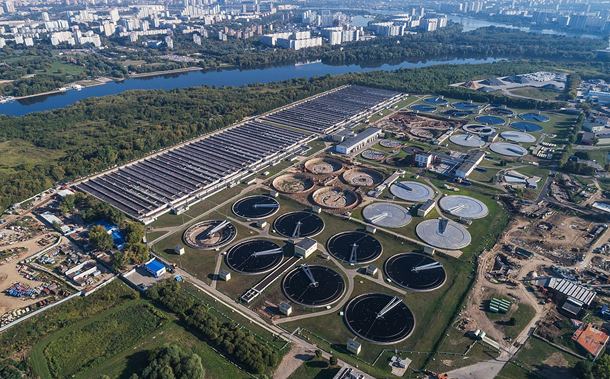Adoption of Prefabrication in Small Scale Construction Projects
Downloads
The construction industry is facing numerous difficulties in managing construction waste, quality, environment, permanence, safety, and greater construction cost. Dynamic change is needed today to overcome new challenges in the construction industry. Adoption of prefabrication is one of the possible solutions to such problems. This paper explores the advantages in prefabrication adoption with its possible disadvantages (barriers) through the qualitative study. This paper is an addition to the existing literature of prefabrication specially for developing countries where the acceptance rate of new approaches is difficult. It covers private residential project and a public housing project. This study also aims to evaluate the current status of prefabrication adoption in small-scale construction projects. A set of the questionnaire is used to collect the data and Average Index (AI) method using SPSS has been used to analyze the results. Shorter construction time, Low site waste and better supervision are the main advantages. Higher initial construction cost and Strict & difficult design changes are the key disadvantages. It is analyzed that the conventional construction method is more frequently used when compared with prefabrication concept.
Downloads
[2] Eastman, Charles M., and Rafael Sacks. "Relative productivity in the AEC industries in the United States for on-site and off-site activities." Journal of construction engineering and management 134, no. 7 (2008): 517-526. doi: 10.1061/(ASCE)0733-9364(2008)134:7(517).
[3] Yee, Alfred A. "Structural and economic benefits of precast/prestressed concrete construction." PCI journal 46, no. 4 (2001).
[4] Yee, Alfred A., and PE Hon D. Eng. "Social and environmental benefits of precast concrete technology." PCI journal 46, no. 3 (2001): 14-19.
[5] Pasquire, Christine L., and Gary E. Connolly. "Leaner construction through off-site manufacturing." Proceedings IGLC, Gramado, Brazil (2002): 263-266.
[6] Idrus, A. B., and J. B. Newman. "Construction Related Factors Influencing the Choice of Concrete Floor Systems.” Construction Management and Economics 20, no. 1 (January 2002): 13–19. doi:10.1080/01446190110101218.
[7] Li, Zhengdao, Geoffrey Qiping Shen, and Mustafa Alshawi. "Measuring the Impact of Prefabrication on Construction Waste Reduction: An Empirical Study in China.” Resources, Conservation and Recycling 91 (September 2014): 27–39. doi:10.1016/j.resconrec.2014.07.013.
[8] Rekha, Ravindra. "Prefabricated Concrete Technology- Perspectives and Challenges.” International journal of Advances in Scientific Research and Engineering (ijasre) 3(Special Issue 1) (2017): 444–52.
[9] Jaillon, Lara, and C. S. Poon. "Sustainable Construction Aspects of Using Prefabrication in Dense Urban Environment: a Hong Kong Case Study.” Construction Management and Economics 26, no. 9 (September 2008): 953–966. doi:10.1080/01446190802259043.
[10] Zhang, Qizhi. "Present Situation and Problems Analysis of Waterproof and Seal of Prefabricated Building Exterior Wall.” Frontiers Research of Architecture and Engineering 1, no. 1 (January 31, 2018): 8. doi:10.30564/frae.v1i1.3.
[11] Zhai, Yue, and George Q. Huang. "Operational Hedging and Coordination in Prefabrication Construction Industry.” Procedia Manufacturing 11 (2017): 1178–1183. doi:10.1016/j.promfg.2017.07.242.
[12] Hwang, Bon-Gang, Ming Shan, and Kit-Ying Looi. "Key Constraints and Mitigation Strategies for Prefabricated Prefinished Volumetric Construction.” Journal of Cleaner Production 183 (May 2018): 183–193. doi:10.1016/j.jclepro.2018.02.136.
[13] Wong, Peter S. P., Charles Zwar, and Ehsan Gharaie. "Examining the Drivers and States of Organizational Change for Greater Use of Prefabrication in Construction Projects.” Journal of Construction Engineering and Management 143, no. 7 (July 2017): 04017020. doi:10.1061/(asce)co.1943-7862.0001309.
[14] Hong, Jingke, Geoffrey Qiping Shen, Zhengdao Li, Boyu Zhang, and Wanqiu Zhang. "Barriers to Promoting Prefabricated Construction in China: A Cost–benefit Analysis.” Journal of Cleaner Production 172 (January 2018): 649–660. doi:10.1016/j.jclepro.2017.10.171.
[15] Fard, Maryam Mirhadi, Seyyed Amin Terouhid, Charles J. Kibert, and Hamed Hakim. "Safety Concerns Related to Modular/prefabricated Building Construction.” International Journal of Injury Control and Safety Promotion 24, no. 1 (June 24, 2015): 10–23. doi:10.1080/17457300.2015.1047865.
[16] Sandberg, Karin, Thomas Orskaug, and Allan Andersson. "Prefabricated Wood Elements for Sustainable Renovation of Residential Building Façades.” Energy Procedia 96 (September 2016): 756–767. doi:10.1016/j.egypro.2016.09.138.
[17] Gunawardena, Tharaka, Tuan Ngo, Priyan Mendis, and Jose Alfano. "Innovative Flexible Structural System Using Prefabricated Modules.” Journal of Architectural Engineering 22, no. 4 (December 2016): 05016003. doi:10.1061/(asce)ae.1943-5568.0000214.
[18] Wong, P., L. Edmonson, and M. Kanellopoulos. "An entropy-based study on the effectiveness of prefabrication in achieving sustainable construction." In Third Australasia and South-East Asia Structural Engineering and Construction Conference, pp. 1-6. ISEC Press, 2016.
- Authors retain all copyrights. It is noticeable that authors will not be forced to sign any copyright transfer agreements.
- This work (including HTML and PDF Files) is licensed under a Creative Commons Attribution 4.0 International License.![]()















